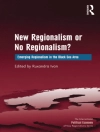Can we conceptualise a kind of citizenship that need not be of a nation-state, but might be of a variety of political frameworks? Bringing together political theory with debates about European integration, international relations and the changing nature of citizenship, this book, available at last in paperback, offers a coherent and innovative theorisation of a citizenship independent of any specific form of political organisation. It relates that conception of citizenship to topical issues of the European Union: democracy and legitimate authority; non-national political community; and the nature of the supranational constitution.
The author argues that citizenship should no longer be seen as a status of privileged membership, but instead as an institutional role enabling individuals’ capacities to shape the context of their lives and promote the freedom and well-being of others. In doing so, she draws on and develops ideas found in the work of the philosopher Alan Gewirth.
สารบัญ
Introduction
Part I
1. Citizenship, part I: membership, privilege, and place
2. Citizenship, part II: status, identity, and role
3. Citizenship of the European Union
Part II
4. Gewirth: action and agency
5. Political agency
6. Nexus, framework: constituting authority
7. Agency, authorisation and representation in the EU
Part III
8. Gewirth: community, rights, values
9. Mutual recognition in the supranational polity
10. The good supranational constitution
Conclusion
เกี่ยวกับผู้แต่ง
Lynn Dobson lectures in Political Theory and EU/International Politics at the University of Edinburgh












